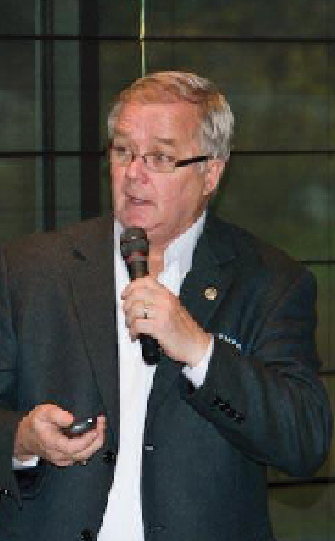GOING FOR A GLOBAL GRANT? Should We Do It?
 You might ask yourself -- should our Rotary Club apply for a Rotary Foundation Global Grant -- and what do we need to do to be successful. Should we do it?
You might ask yourself -- should our Rotary Club apply for a Rotary Foundation Global Grant -- and what do we need to do to be successful. Should we do it?
The answer is YES as long as you understand this is a 3-year to 5-year assignment and that you will need partners involved in the program.
Fifteen years ago when I joined the Rotary Club of Olympia, my club wanted to do a Water Project in Malawi. They asked me to lead the endeavor since I am a Water Engineer, a former State Grants Administrator, and at the time, a new member.
My first response was that the "needs assessment" and strategy for helping the Malawi community seemed pretty straight forward. After all, I had designed and managed the construction of many water systems in North America. I knew how to budget, contract and supervise contractors to complete major programs.
Guess Again! There is more to administering fruitful Global Grant ventures than applying for the funds.
Planning a third world water, sanitation, and hygiene (WASH) project, including writing the "Needs Assessment" documentation and managing the contractors has different rules in developing countries. When an undertaking is 10,000 miles away in a rural part of a nation that has few if any building codes or contract laws, project management requires far more attention to detail than it does in North America.
Operating a Global Grant is truly a project management assignment. The Rotary Foundation (TRF) procedures are designed to help you, your Club, and the District complete the project successfully. But it takes attention on specifics.
The crucial first steps are to identify the community you want to serve, the village leadership, the host club, and the on-the-ground professionals. The professionals are often expats, NGOs or town dignitaries with world experience. These people will become your eyes and ears at the project site.
A club and community led needs assessment along with a sustainable plan to pay for and operate the completed system are essential predecessors to a successful outcome. Without these factors in place, don't start the project, or it will join the ranks of the 50% that fail in the first three years.
Our Rotary club and the twelve clubs in Thurston and Lewis Counties, WA have formed a water committee that meets monthly to help each other work through the steps involved in managing successful WASH projects.
We draw funds from our joint "Annual Cool Jazz/Clean Water" fundraiser to help finance our WASH ventures, matching District and TRF funding.
During the last 15 years, with help from our partners, we have funded projects in Malawi ($800,000); Kenya ( $250,000), PNG - Papua New Guinea ( $600,000): and Honduras ($200,000). Now we are also helping Transform International create Community Transformation Centers (training centers) in ten countries.
We are utilizing the District and TRF Global Grant matching fund program, and we are collaborating with many other NGOs and Foundations to make a difference with our Rotary contributions and project leadership.
Inspired by the Polio Plus successes, Rotarians are leading the way in collaborating with other organizations to address the WASH needs of developing countries. District 5020 is actively participating by developing associations and teams across borders to help create solutions
for many.
Robert Wubbena, Past Club President (2013-14), Rotary Club of Olympia
Rotary Club of Olympia Website: http://www.olyrotary.org/
Olympia Club Facebook: https://www.facebook.com/olyrotary/